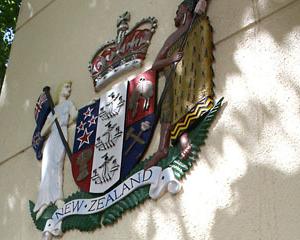
The plans build on the findings of two multi-agency meetings held this year, led by council principal housing policy adviser Gill Brown.
The meetings included charity leaders as well as Oranga Tamariki, the Ministry of Social Development and police.
The council was also weighing in behind investigations into boarding houses, after the Otago Daily Times’s investigation, "Horror Houses", exposed them for housing vulnerable homeless people in appalling conditions, without appropriate support.
Two boarding houses — in High St and Kaikorai Valley Rd — were already on the "radar" of council building services staff.
Occupants of the High St building include people previously in a Phillips St boarding house that burned down last year.
Council action to tackle homelessness was backed by deputy mayor Sophie Barker, who said the ODT investigation was "ripping the lid off the disgraceful problem — and we need to work together to solve it".
"We need to protect everyone."
Describing homelessness as "a complex issue" that could be "difficult to quantify accurately", Ms Brown said the meetings aimed to enable better understanding of the extent of homelessness and the vulnerabilities of homeless people and create a "multi-agency response" that included wider community partners.
"A joined-up, city-wide approach, with all relevant stakeholders operating together, will help better ensure vulnerable people don’t slip through the cracks."
The homelessness plans — to be considered by the council’s community services committee next Tuesday — are expected to focus on a "functional zero" approach, meaning more people leave homelessness than enter into it, reducing the total number in need.
Night Shelter manager David McKenzie, who is taking part in the discussions, envisaged "co-ordinated, funded care resulting in homes and support for everyone who needs it".
Mr McKenzie said the night shelter, which provided emergency stays for up to five nights, dealt with homeless people who had "desperate" needs.
"We are the front line, evidencing that the pathway into a home, with tailored support a homeless person needs, is currently broken in Dunedin and needs mending urgently."
Night Shelter chairwoman Clare Curran said accommodation options for the homeless were still "scarce and often grim" and she hoped the council would "step up and commit to resourcing a concrete homelessness plan" to address a "glaring and ongoing lack of prioritisation to address homelessness in the city".
The council’s plan was a "priority piece of work" within a wider housing action plan adopted by the council last year to encourage and provide more "healthy, accessible and affordable housing in Dunedin", Ms Curran said.
The council has committed to spending $20million on more community housing as part of its 10-year plan to 2031, but at a drip-feed rate of $2m a year.
State-supported social housing — provided by both Kainga Ora and the council — is in short supply in Dunedin and there are long waiting lists.
The boarding houses being investigated by the council were among a list of 11 buildings forwarded to the council and government by the ODT last month.
On Monday, Ministry of Business, Innovation and Employment (MBIE) staff will check all 11 boarding houses for healthy homes standards and tenancy law compliance.
MBIE has recommended councils regularly audit the standards of buildings that have warrants of fitness — and buildings with most risk, such as multi-occupancy buildings, should be audited most frequently.
The council said several boarding houses collated by the ODT had been inspected over the past year. Council building services manager Paul Henderson said the role of the council was "limited" to making sure properties’ "structures and systems are compliant with the Building Act, including ensuring they are not dangerous or insanitary as defined by the Act".
"Other issues, such as general cleanliness and complying with healthy homes standards, are for other agencies to manage and enforce," he said.







